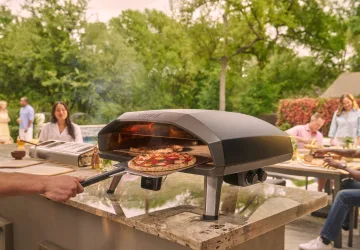Do you have a lot of items to carry on your next road trip, but your vehicle’s trunk is not quite spacious enough for everything? It’s time to consider investing in a rooftop cargo carrier! A rooftop cargo carrier is an accessory mounted onto the roof of a car to increase its storage capacity. But with so many options available on the market, how do you choose the best one for your needs? This ultimate guide will help you make an informed decision.
Types of Rooftop Cargo Carriers
Before we dive into the factors you should consider when choosing a rooftop cargo carrier, let’s first talk about the different types available.
Soft Shell Roof Top Bags: These are made from waterproof materials like PVC-coated nylon and are flexible in shape. They can be attached to almost any type and size of aftermarket roof rack system or crossbars. They’re great when packed fully because they take up less space than their hard shell counterparts when empty.
Hard Shell Roof Top Boxes: Hard shell rooftop cargo carriers are rigid containers made from sturdy materials such as ABS and polycarbonate plastics or aluminum, which hold their shape even if not full. They offer better protection against harsh weather conditions since they tend to be completely waterproof, even during heavy rains or snowfalls.
Factors To Consider When Choosing A Rooftop Cargo Carrier
Size: The size of the rooftop cargo carrier depends on two factors- one is how much luggage you have to carry, and secondly, how big your car roof is. Make sure that before purchasing any rooftop box or bag that it fits safely onto your car roof, measure the car’s rooftop. Otherwise, it could damage both your gear and vehicle. Softshell bags can fit most cars since they mold themselves according to space restrictions, while hard shell boxes come in different sizes ranging between small (10 cubic feet) up to large (25 cubic feet).
Weight Capacity: The weight capacity of any rooftop bag or box is important. Make sure you buy one that can carry the items you want to transport safely. Most rooftop carriers have a weight capacity ranging from 100-200 pounds.
Compatibility: If your car already has roof racks installed, make sure the rooftop carrier is compatible with them. Most carriers will fit with any factory-installed roof rack. However, the same cannot be said for aftermarket roof rack systems. It’s vital to ensure that whichever cargo carrier you choose works seamlessly with your vehicle’s current accessories.
Security: Security features are paramount when it comes to choosing a perfect rooftop carrier for added safety and peace of mind on road trips or journeys. Choose a hard shell box or soft-shell bag with lockable zippers, padlocks in grooves, or cable locks, which increase security while parked overnight at motels and holiday destinations.
Ease Of Installation: Rooftop carriers shouldn’t be challenging to install since this lowers their usability level significantly. Choose one where installation is easy and quick. Most bags connect using straps that go around the roof-rack crossbars under mounting locations, while boxes usually bolt onto those same rack systems’ metal frame points.
Price: Like every other product category, rooftop cargo carriers come in different price ranges depending on their size and the quality of materials used in construction. But don’t just focus on cost alone when making a purchase- affordable doesn’t always mean effective! Look out for bargains during sales promotion periods from reputable providers.
Brand & Reputation: Always buy brands proven over time because they warranty products against defects and back up product’ claims even post-purchase. This is generally done by customer service departments maintained by reputable manufacturers only found online. Thus do some research to find reliable ones offering exceptional customer support personnel able to answer questions via phone and email chats and resolve issues promptly without hassle!
Conclusion
In summary, understanding what type of rooftop cargo carrier best fits your needs requires careful consideration of factors like size, weight capacities, weight limits (including compatibility), types of construction materials used, features such as security and ease-of-installation, product warranties available, brands and reputations. Once the factors are considered, you can make an informed buying decision for your next road trip or excursion! So choose your rooftop cargo carrier wisely!





